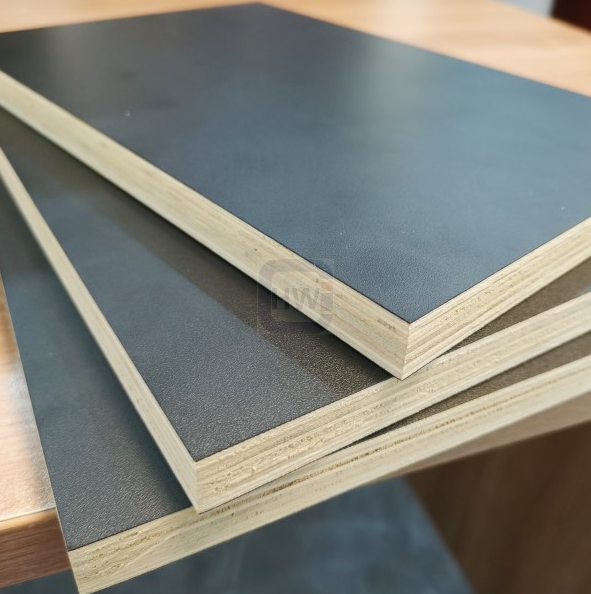
Hello there, fellow adventurers and RV enthusiasts! If you’re planning to embark on a journey in your trusty recreational vehicle or are considering giving your RV roof some much-needed TLC, you’ve come to the right place. Today, we’re diving into the topic of RV roof plywood thickness. I’ll guide you through the essentials, answer your burning questions, and ensure you’re well-prepared to take on your RV roofing project. So, let’s get started!
What Is RV Roof Plywood?
Before we delve into thickness considerations, let’s clarify what RV roof plywood is. In the construction of an RV, the roof is often built using plywood as its base. This plywood serves as the structural foundation for the roof and provides support for various roof coverings, such as rubber roofing or fiberglass.
The Importance of RV Roof Plywood Thickness
The thickness of your RV roof plywood is a critical factor in determining the structural integrity and durability of your RV’s roof. Choosing the right thickness ensures that your roof can withstand the rigors of travel, temperature fluctuations, and the occasional hailstorm. Let’s explore the factors that influence this choice:
1. Plywood Thickness Options
RV roof plywood typically comes in thicknesses ranging from 3/8 inch to 3/4 inch. Each thickness has its own set of advantages and considerations:
- 3/8 Inch: This thinner plywood is lightweight, making it an excellent choice for fuel efficiency. However, it may not provide as much structural support or insulation.
- 1/2 Inch: A common choice for many RV roofs, 1/2-inch plywood strikes a balance between weight and structural integrity. It’s a versatile option suitable for various RV sizes and types.
- 5/8 Inch: Opting for 5/8-inch plywood offers increased strength and stability. It’s often preferred for larger RVs or those with additional weight on the roof, such as air conditioning units.
- 3/4 Inch: The thickest option, 3/4-inch plywood, provides maximum strength and durability. It’s an excellent choice for large, heavy RVs or those frequently exposed to challenging weather conditions.
2. RV Size and Weight
The size and weight of your RV play a significant role in determining the appropriate plywood thickness. Larger RVs or those with heavier equipment on the roof, such as satellite dishes or solar panels, may require thicker plywood to support the added load.
3. Intended Use
Consider how you plan to use your RV. If you’ll be traveling frequently and traversing various terrains, thicker plywood can provide added peace of mind in terms of structural stability.
4. Climate Considerations
Climate can impact the choice of plywood thickness. If you’ll be traveling in regions with extreme temperature fluctuations or frequent rain, opting for thicker plywood can enhance your RV’s weather resistance.
FAQs About RV Roof Plywood Thickness
Let’s address some common questions about RV roof plywood thickness to ensure you have all the information you need:
Q1: Can I upgrade my RV roof plywood thickness?
A1: In some cases, you can upgrade your RV roof plywood thickness during a renovation or roof replacement project. However, it’s essential to consult with an RV specialist or manufacturer to determine if this is feasible for your specific RV model.
Q2: How can I check the current thickness of my RV roof plywood?
A2: To check the thickness of your RV roof plywood, locate an accessible area on the interior ceiling, such as a vent or roof access panel. Remove the panel or trim to expose the plywood, and then measure its thickness.
Q3: Is it possible to reinforce my existing RV roof plywood without replacing it?
A3: Yes, you can reinforce your existing RV roof plywood by adding additional support beams or joists. This can improve the structural integrity without a full plywood replacement.
Q4: What is the average lifespan of RV roof plywood?
A4: The lifespan of RV roof plywood can vary depending on factors like climate, maintenance, and usage. On average, well-maintained plywood can last 10 to 20 years.
Conclusion: Finding the Right Balance
Choosing the appropriate roof plywood thickness is all about finding the right balance between weight, strength, and your specific RV’s needs. Whether you’re planning a roof replacement or simply looking to understand your RV better, making an informed decision regarding plywood thickness is crucial. After all, your RV’s roof is its first line of defense against the elements, so it’s worth the attention.
As you embark on your RV adventures, remember that proper maintenance and regular inspections can significantly extend the life of your RV roof plywood. And if you ever need high-quality plywood materials for your RV projects, don’t hesitate to visit our website. We’re here to provide you with the best materials to keep your RV in tip-top shape. Safe travels and happy RVing!
Post time: 3 10 月, 2023
